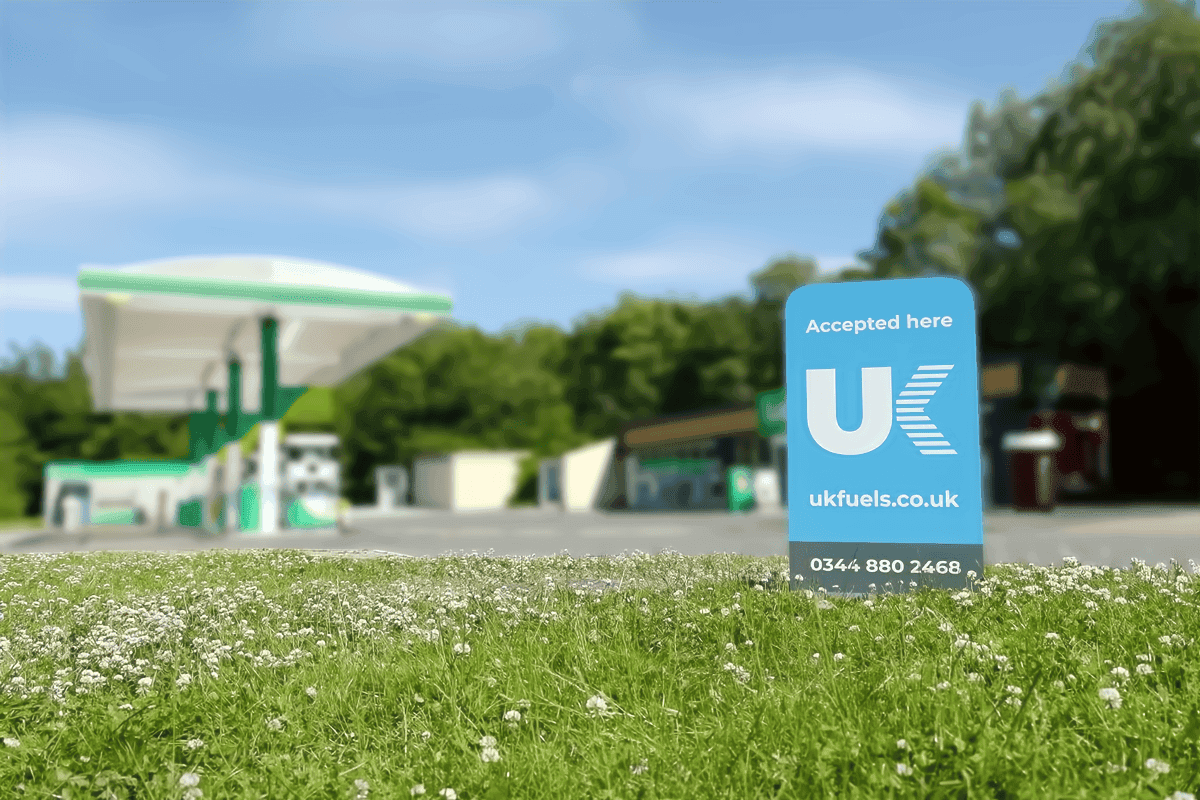Fuel is a major expense for any business with vehicles. Whether you run a fleet of vans or a handful of company cars, you’ll know that the pump price is made up of more than just the cost of the fuel itself.
A significant part of that price is tax. Specifically, Fuel Duty and VAT.
But what exactly is Fuel Duty, and where does all that money go?
This explainer breaks down everything UK businesses need to know about this essential, but often confusing, tax.

What is Fuel Duty?
Fuel Duty is an excise tax levied by the UK government.
- It is applied to petrol, diesel, and other road fuels.
- The duty is charged per litre of fuel.
- Crucially, it is included in the pump price you pay at the forecourt. You pay it when you purchase the fuel.
- It is not the same as VAT. Currently at 20%, VAT is calculated on the total cost, which includes the wholesale price plus the Fuel Duty itself.
Fuel Duty is a major source of revenue for the Treasury. In 2024/25, fuel duties raised almost £25 billion (UK Parliament, Research Briefing, September 2025).
How is Fuel Duty calculated?
The main rate of Fuel Duty is set by the government. It is a fixed monetary value per litre, not a percentage.
- The current main rate for unleaded petrol and diesel is 52.95 pence per litre (£0.5295/litre).
- This rate has been frozen since 2011, and includes a temporary 5 pence per litre cut introduced in March 2022 and subsequently extended.
- Different, lower rates apply to other types of fuel, such as Liquefied Petroleum Gas (LPG) and certain "rebated" oils like red diesel for off-road use.
- The total tax you pay on a litre of fuel is the Fuel Duty (52.95p) plus 20% VAT on the total cost.
Did you know?
The latest data shows that tax (Duty and VAT) can make up around 40-50% of the total pump price. See the RAC Foundation’s data on pump price breakdown here.
Who pays Fuel Duty?
Everyone who buys taxable road fuel in the UK pays Fuel Duty.
The duty is paid by the fuel supplier to HMRC, and that cost is then passed directly on to the consumer in the price at the pump.
For businesses, this means:
- It is paid by sole traders, small companies, and large fleets alike.
- It applies to company vehicles, pool vehicles, and even personal cars used for business mileage.
Can Fuel Duty be reclaimed?
In most cases, no, the Fuel Duty itself cannot be reclaimed by businesses operating normal road vehicles.
Fuel Duty is not like VAT; it is an excise tax that is a final cost.
However, there are a few important exceptions and related tax reliefs to be aware of:
- VAT on Fuel: If your business is VAT-registered, you can reclaim the VAT portion of the fuel cost, provided you have a valid VAT receipt and the fuel was used for business purposes.
- Fuel Duty Reliefs: There are specific reliefs for certain uses or locations. For instance, fuels used for generating electricity or in marine voyages may be exempt or eligible for a repayment. There is also a Rural Fuel Duty Relief for retailers in certain remote areas. You can check specific reliefs on the GOV.UK website.
Top Tip for Businesses:
Reclaiming VAT on fuel can be complex, especially for mixed business and personal use. Many firms use the Fuel Scale Charge calculation method to simplify this process.
What does Fuel Duty pay for?
Fuel Duty revenue goes into the government’s central fund, known as the Consolidated Fund.
- This means the money is not directly ‘ring-fenced’ for roads or motoring expenses.
- Instead, it contributes to the UK's general public spending.
- Fuel Duty, along with other taxes like Income Tax and VAT, funds essential public services such as the NHS, education, defence, and welfare.
While the receipts are not directly hypothecated for roads, the revenue raised is a huge part of the government's overall budget, which does include major spending on the national road network and other transport infrastructure.
Managing your fuel costs with a fuel card
While Fuel Duty itself is a fixed cost mandated by the government, the *management* of your overall fuel expenses is entirely within your control.
Fuel costs are substantial, and every penny matters, especially for businesses running fleets.
This is where a solution like a fuel card from Radius can make a real difference:
- Simplified VAT Reclaim: Fuel cards provide consolidated, HMRC-compliant invoicing. This makes the complicated process of accurately reclaiming the VAT portion of your fuel spend much faster and simpler.
- Controlling Spend: You can set purchase limits, restrict what can be bought (fuel only), and track every transaction in real-time. This reduces the risk of fraud and misuse across your fleet.
- Better Budgeting: Having all your transactions on one statement gives you a clear, single view of your overall fuel consumption and spending, aiding in better financial forecasting and budgeting.
By using a fuel card, you streamline your administrative processes and gain control, ensuring you are only paying for the fuel your business genuinely uses and making VAT reclaim as efficient as possible.

Let us find the right cards for you
As a leading fuel card provider, we can help you to manage your operation efficiently and effectively. Click below to find a card for your business.
Save time and money with fuel cards
For over 35 years, Radius has been keeping drivers and businesses on the move. Today, our fuel card network gives you access to 8,300 UK fuel stations, with options that fit every need.
